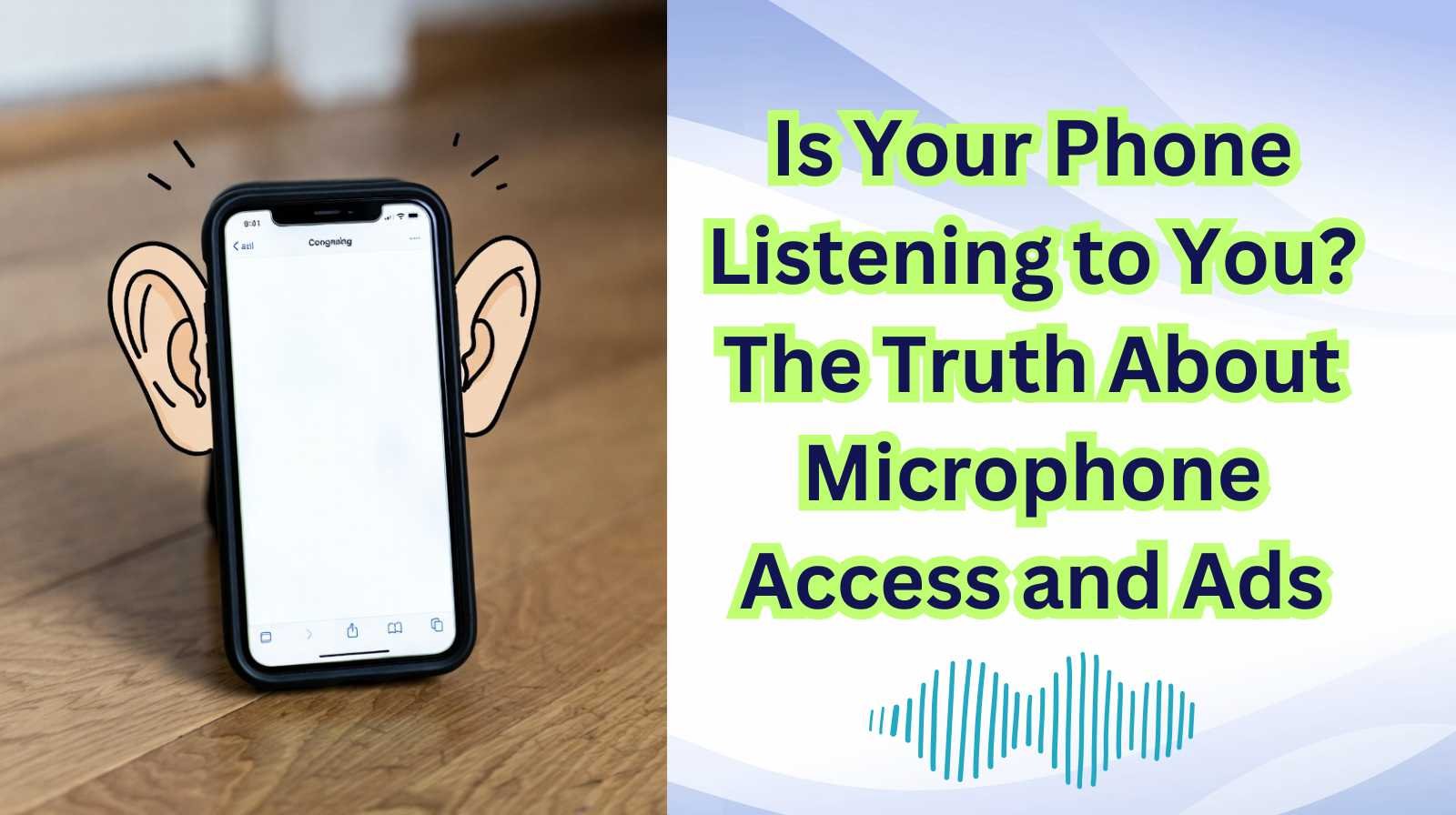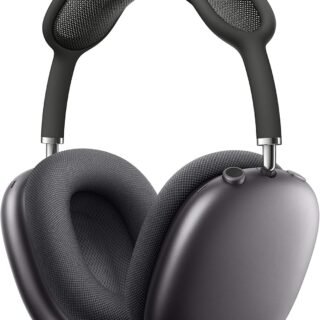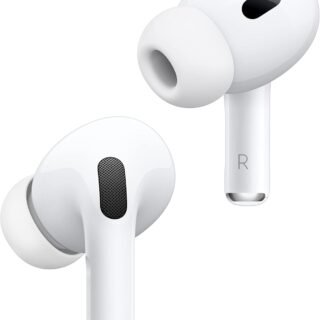Category
Popular Articles
- AI (17)
- Android (45)
- App Suggest (13)
- Apple (35)
- Apple TV (4)
- Bluetooth (3)
- Cars (2)
- ChatGpt (1)
- Chrome (2)
- Did you know? (1)
- E-Commerce News (1)
- Ecommerce Websites business (7)
- Electronics Shopping (5)
- Fashion Tips (3)
- Gaming (5)
- Google Gemini (3)
- Hair Care Tips (2)
- How to (13)
- iCloud (1)
- Infotainment System (1)
- Iphone (127)
- Job Posting (1)
- Lifestyle (3)
- Mac (22)
- Mobile Games (1)
- Netflix (1)
- Online Shopping Websites (2)
- Personal Finance Management (3)
- Product Reviews (3)
- Roku TV (4)
- Samsung (10)
- Shopping Tips (13)
- Spotify (1)
- Tech (144)
- VPN (2)
- Windows 11 (31)
- Zero Waste (3)
Discounted Products
-
 Leo Creation 144 TC Cotton Double Jaipuri Prints Flat Bedsheet(Pack of 1, Blue, Gree, Red, Grey, Light Grey)
Leo Creation 144 TC Cotton Double Jaipuri Prints Flat Bedsheet(Pack of 1, Blue, Gree, Red, Grey, Light Grey)
₹2,999.00Original price was: ₹2,999.00.₹329.00Current price is: ₹329.00. -
 Home Garage 210 TC Cotton King Floral Fitted (Elastic) Bedsheet(Pack of 1, Grey)
Home Garage 210 TC Cotton King Floral Fitted (Elastic) Bedsheet(Pack of 1, Grey)
₹999.00Original price was: ₹999.00.₹299.00Current price is: ₹299.00. -
 Goodrik 140 TC Cotton Double 3D Printed Flat Bedsheet(Pack of 1, Brown)
Goodrik 140 TC Cotton Double 3D Printed Flat Bedsheet(Pack of 1, Brown)
₹499.00Original price was: ₹499.00.₹229.00Current price is: ₹229.00. -
 GLOBALSHOP 350 TC Microfiber Double Floral Flat Bedsheet(Pack of 1, Multicolor)
GLOBALSHOP 350 TC Microfiber Double Floral Flat Bedsheet(Pack of 1, Multicolor)
₹1,250.00Original price was: ₹1,250.00.₹263.00Current price is: ₹263.00. -
 RisingStar 250 TC Microfiber King Printed Fitted (Elastic) Bedsheet(Pack of 1, FITTED-ROUND-CIRCLES-PREMIUM)
RisingStar 250 TC Microfiber King Printed Fitted (Elastic) Bedsheet(Pack of 1, FITTED-ROUND-CIRCLES-PREMIUM)
₹2,299.00Original price was: ₹2,299.00.₹299.00Current price is: ₹299.00. -
 Home Garage 210 TC Cotton King Floral Fitted (Elastic) Bedsheet(Pack of 1, Fitted Black Green)
Home Garage 210 TC Cotton King Floral Fitted (Elastic) Bedsheet(Pack of 1, Fitted Black Green)
₹1,299.00Original price was: ₹1,299.00.₹299.00Current price is: ₹299.00. -
 Home Garage 180 TC Cotton King 3D Printed Flat Bedsheet(Pack of 1, White)
Home Garage 180 TC Cotton King 3D Printed Flat Bedsheet(Pack of 1, White)
₹999.00Original price was: ₹999.00.₹229.00Current price is: ₹229.00. -
 Home Sizzler 153 cm (5 ft) Polyester Room Darkening Window Curtain (Pack Of 2)(Floral, Maroon)
Home Sizzler 153 cm (5 ft) Polyester Room Darkening Window Curtain (Pack Of 2)(Floral, Maroon)
₹799.00Original price was: ₹799.00.₹299.00Current price is: ₹299.00. -
 Panipat Textile Hub 152.4 cm (5 ft) Polyester Window Curtain (Pack Of 2)(Solid, Aqua)
Panipat Textile Hub 152.4 cm (5 ft) Polyester Window Curtain (Pack Of 2)(Solid, Aqua)
₹1,899.00Original price was: ₹1,899.00.₹299.00Current price is: ₹299.00. -
 Home Sizzler 214 cm (7 ft) Polyester Semi Transparent Door Curtain (Pack Of 2)(Floral, Maroon)
Home Sizzler 214 cm (7 ft) Polyester Semi Transparent Door Curtain (Pack Of 2)(Floral, Maroon)
₹1,199.00Original price was: ₹1,199.00.₹399.00Current price is: ₹399.00. -
 Home Sizzler 153 cm (5 ft) Polyester Room Darkening Window Curtain (Pack Of 2)(Floral, Brown)
Home Sizzler 153 cm (5 ft) Polyester Room Darkening Window Curtain (Pack Of 2)(Floral, Brown)
₹799.00Original price was: ₹799.00.₹299.00Current price is: ₹299.00. -
 Stella Creations 214 cm (7 ft) Polyester Room Darkening Door Curtain (Pack Of 2)(Abstract, Brown)
Stella Creations 214 cm (7 ft) Polyester Room Darkening Door Curtain (Pack Of 2)(Abstract, Brown)
₹1,299.00Original price was: ₹1,299.00.₹449.00Current price is: ₹449.00. -
 Homefab India 152.5 cm (5 ft) Polyester Room Darkening Window Curtain (Pack Of 2)(Floral, Light Blue)
Homefab India 152.5 cm (5 ft) Polyester Room Darkening Window Curtain (Pack Of 2)(Floral, Light Blue)
₹1,199.00Original price was: ₹1,199.00.₹319.00Current price is: ₹319.00. -
 Urban Home 214 cm (7 ft) PVC Transparent Door Curtain Single Curtain(Solid, Off White)
Urban Home 214 cm (7 ft) PVC Transparent Door Curtain Single Curtain(Solid, Off White)
₹699.00Original price was: ₹699.00.₹203.00Current price is: ₹203.00. -
 Panipat Textile Hub 213 cm (7 ft) Polyester Door Curtain (Pack Of 2)(Solid, Brown)
Panipat Textile Hub 213 cm (7 ft) Polyester Door Curtain (Pack Of 2)(Solid, Brown)
₹1,199.00Original price was: ₹1,199.00.₹349.00Current price is: ₹349.00.
Affiliate Links
Promotion

We’ve all been there — you talk about a vacation, a pair of shoes, or your favorite restaurant, and minutes later, your phone shows you an ad for it. It feels too coincidental to be random. Naturally, the question pops up: Is your phone actually listening to you?
The short answer: not in the way you think.
While it’s easy to imagine our devices eavesdropping like digital spies, the reality is more complicated — and, in some ways, even more unsettling. Let’s dive into how microphone access, data collection, and targeted advertising really work, and what you can do to protect your privacy.
1. Why It Feels Like Your Phone Is Listening
You chat with a friend about getting a new vacuum cleaner, and boom — an ad for robot vacuums appears on your Instagram feed. Spooky? Yes. But is it proof that your phone was recording your conversation? Probably not.
What’s really happening is a mix of predictive algorithms, data profiling, and cross-platform tracking.
Tech companies like Google, Meta (Facebook and Instagram), and Amazon have massive databases about you — what you search, where you go, who you interact with, and what you buy. Using this data, their AI systems predict your interests and serve you creepily accurate ads even without listening.
For example, if you:
- Googled “best carpets for pets,”
- Followed a cleaning influencer, and
- Recently moved (based on location data or Amazon shipping addresses),
The system can predict that you might be interested in a vacuum cleaner — no microphone access needed.
2. But Can Apps Technically Listen to You?
Yes — if you grant permission.
Most smartphone apps ask for microphone access when you install them. Some need it (like WhatsApp or TikTok), while others may not but still request it. Once granted, an app could, in theory, record snippets of sound.
However, both Apple and Google’s operating systems have strict privacy frameworks:
- iOS and Android require explicit user permission for microphone access.
- You can now see a small green or orange dot indicator when your mic is being used.
- Apps are periodically reviewed and can be removed from app stores for policy violations.
That said, there have been rare cases of apps abusing these permissions — collecting background data, monitoring ambient noise, or analyzing voice commands for targeted ads.
So, while your phone isn’t constantly “listening,” some apps might misuse permissions to gather more data than they need.
3. How Advertisers Target You Without Listening
The magic (or madness) behind hyper-personalized ads lies in data triangulation — a process where companies combine multiple streams of data to form a complete profile of your interests and habits.
Here’s how it happens:
- Online Activity: Every website you visit drops cookies to track your behavior.
- Social Media Engagement: Liking a post about skincare can tag you as someone interested in beauty products.
- Location Tracking: Visiting a coffee shop chain frequently might signal that you’re a coffee lover.
- Search and Purchase History: Google and Amazon remember what you’ve searched, even if you didn’t buy it.
- Contacts and Network Data: Friends’ activities can influence what ads you see (e.g., similar interests).
These signals are combined into a massive data ecosystem shared between advertisers, app developers, and ad networks.
So when you suddenly see an ad related to something you talked about, it’s usually because the algorithms are eerily good at connecting the dots, not because your phone was eavesdropping.
4. Why Voice Assistants Are Different
Voice assistants like Siri, Alexa, and Google Assistant do constantly listen — but only for their “wake words.”
For example:
- Siri listens for “Hey Siri”
- Alexa listens for “Alexa”
- Google Assistant listens for “Hey Google”
When they hear these words, the device starts recording your command, processes it (often on remote servers), and responds accordingly.
While companies claim these recordings are used to improve speech recognition and user experience, some human reviewers have historically analyzed voice samples — raising major privacy concerns.
Both Apple and Google have since introduced opt-out options for voice data sharing and pledged to anonymize recordings.
5. Real Privacy Risks You Should Care About
Even if your phone isn’t actively spying through the mic, there are legitimate privacy risks worth paying attention to:
- Over-permissioned Apps: Many apps request access to your mic, camera, or location even when it’s not needed.
- Third-Party SDKs: Some apps use third-party advertising or analytics software that can harvest user data.
- Background Data Collection: Apps may track your activity or location even when closed.
- Phishing and Fake Apps: Malicious apps can disguise themselves as harmless utilities to record data or audio.
In other words, the threat is not from your phone itself — it’s from what you’ve installed on it.
6. How to Protect Your Phone from Listening and Data Abuse
Here are practical steps you can take to regain control over your privacy:
✅ Check Microphone Permissions
On both iOS and Android:
- Go to Settings → Privacy → Microphone Access
- Review which apps have permission and turn off any that don’t need it.
✅ Disable “Hey Siri” or “Hey Google” (Optional)
If you rarely use voice assistants, disable “wake word” listening to prevent accidental recordings.
✅ Use App Tracking Transparency (iPhone)
Apple’s App Tracking Transparency (ATT) lets you stop apps from tracking you across other apps and websites. Always choose “Ask App Not to Track.”
✅ Limit Background Activity
In Settings, restrict background data usage and disable unnecessary permissions like location and contacts for suspicious apps.
✅ Regularly Audit Installed Apps
Uninstall apps you don’t use. Free flashlight apps or photo editors are notorious for over-collecting data.
✅ Use Privacy-Focused Browsers and Search Engines
Consider browsers like Brave or Firefox Focus, and search engines like DuckDuckGo, which don’t track your activity.
✅ Keep Your Software Updated
Regular updates patch vulnerabilities that malicious apps could exploit for eavesdropping or data theft.
7. What Experts and Studies Say
A 2018 study by researchers at Northeastern University tested over 17,000 popular Android apps and found no evidence that apps were secretly activating microphones to record conversations.
However, the study did find that some apps screen-recorded user activity and sent it to advertisers — without clear consent.
Privacy experts agree that while your phone probably isn’t “listening,” the amount of personal data being collected is enormous — and often invisible.
In 2021, Apple’s iOS 14.5 update marked a turning point, giving users more transparency. Since then, many advertisers have complained that ad targeting accuracy dropped, confirming how dependent they were on user data.
8. The Real Problem: Data, Not the Microphone
The bigger issue isn’t your phone’s microphone — it’s the business model behind free apps.
Most free apps rely on advertising revenue. To maximize profits, they need to understand user behavior in microscopic detail. That’s why data — not your voice — is their most valuable asset.
As long as personalized advertising remains the backbone of digital platforms, companies will continue to find new, legal ways to gather your information — often with your unintentional consent.
9. The Future of Privacy
The good news is that public pressure and stricter privacy laws are making a difference.
Laws like the EU’s GDPR and California’s CCPA have forced companies to disclose what data they collect and allow users to opt out.
Meanwhile, Apple and Google are redefining how ad tracking works — shifting toward privacy-preserving methods that don’t rely on individual identifiers.
Still, real privacy will depend on user awareness. You don’t need to go off-grid — just be smarter about the permissions you grant and the data you share.
Final Thoughts
So, is your phone listening to you?
Technically, it could — but in most cases, it doesn’t have to.
Modern advertising and analytics systems are so sophisticated that they can predict your interests without ever recording your voice.
Your best defense? Awareness. Regularly review app permissions, control tracking settings, and choose products that respect your privacy.
Because in today’s digital world, the line between convenience and surveillance is thinner than ever — and it’s up to you to draw it.
Disclaimer: The information in this article is for general awareness purposes only. It does not imply that any specific company or app is engaging in illegal surveillance. Always refer to your device’s official privacy settings and documentation for the most accurate information.
Written by Bazaronweb
Latest Tech Articles
- Why Android Phones Start Lagging After Months of Use and What’s Really Causing It

- Why iPhone Becomes Slow Over Time Even If You Never Install New Apps

- Why iPhone Storage Fills Up Even When You Delete Photos and How to Fix It Properly

- Why Windows 11 Feels Slow After Updates and How to Fix It Without Resetting Your PC

- How to Free Up Storage on Windows 11 Without Deleting Important Files

Products
-
![Apple Watch Ultra 3 [GPS + Cellular 49mm] Running & Multisport Smartwatch w/Rugged Titanium Case w/Black Titanium Milanese Loop - M. Satellite Communications, Advanced Health & Fitness Tracking](https://bazaronweb.com/retailstores/wp-content/uploads/2025/09/apple-watch-320x320.jpg) Apple Watch Ultra 3 [GPS + Cellular 49mm] Running & Multisport Smartwatch w/Rugged Titanium Case w/Black Titanium Milanese Loop - M. Satellite Communications, Advanced Health & Fitness Tracking
Apple Watch Ultra 3 [GPS + Cellular 49mm] Running & Multisport Smartwatch w/Rugged Titanium Case w/Black Titanium Milanese Loop - M. Satellite Communications, Advanced Health & Fitness Tracking
-
 Apple iPad mini (A17 Pro): Apple Intelligence, 8.3-inch Liquid Retina Display, 256GB, Wi-Fi 6E, 12MP Front/12MP Back Camera, Touch ID, All-Day Battery Life — Purple
Apple iPad mini (A17 Pro): Apple Intelligence, 8.3-inch Liquid Retina Display, 256GB, Wi-Fi 6E, 12MP Front/12MP Back Camera, Touch ID, All-Day Battery Life — Purple
-
 Apple AirPods Max Wireless Over-Ear Headphones, Active Noise Cancelling, Transparency Mode, Personalized Spatial Audio, Dolby Atmos, Bluetooth Headphones for iPhone – Space Gray
Apple AirPods Max Wireless Over-Ear Headphones, Active Noise Cancelling, Transparency Mode, Personalized Spatial Audio, Dolby Atmos, Bluetooth Headphones for iPhone – Space Gray
-
 Apple AirPods Pro 2 Wireless Earbuds, Active Noise Cancellation, Hearing Aid Feature, Bluetooth Headphones, Transparency, Personalized Spatial Audio, High-Fidelity Sound, H2 Chip, USB-C Charging
Apple AirPods Pro 2 Wireless Earbuds, Active Noise Cancellation, Hearing Aid Feature, Bluetooth Headphones, Transparency, Personalized Spatial Audio, High-Fidelity Sound, H2 Chip, USB-C Charging
-
 Leo Creation 144 TC Cotton Double Jaipuri Prints Flat Bedsheet(Pack of 1, Blue, Gree, Red, Grey, Light Grey)
Leo Creation 144 TC Cotton Double Jaipuri Prints Flat Bedsheet(Pack of 1, Blue, Gree, Red, Grey, Light Grey)
₹2,999.00Original price was: ₹2,999.00.₹329.00Current price is: ₹329.00.
Leave a Reply